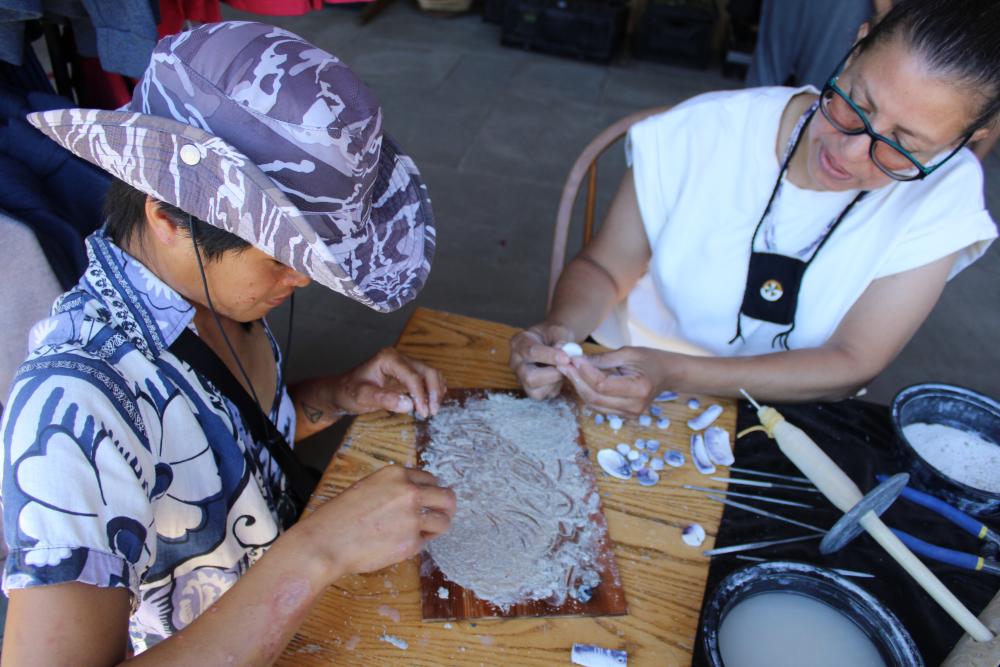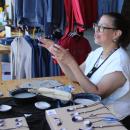A coastal identity like no other: Local artist crafts Native jewelry
With gentle hands guiding quahog shells and soapstone beads through sand, Dartmouth resident Elizabeth James-Perry carefully crafts her wampum jewelry using local material.
James-Perry set up a learning booth at the Round the Bend Farm's Open Farm Days Saturday, July 19. A pillar to the farm's community, she said she feels like she’s, "been working with wampum forever."
"I think I started in the 90s," she said. "When I first started working with wampum, it was kind of like a revived traditional Native art."
Wampum is a coastal Algonquian artform. Carved from quahog, the unique purple and white of the shells are considered wholesome to the tribes because the material comes out of the Atlantic ocean, from which Wampanoags take identity.
"You have a beautiful purple color. You could open up 300 quahog shells and no two would be the same," she said.
James-Perry was demonstrating her process to guests. After hand carving her beads, drilling a hole using a native pump-drill and smoothing them down with sand and water, she creates jewelry that she sells.
Although her supplies come from around the South Coast, one part of the process was more local than the others.
"I wanted fine sand," she said. "This sand is totally from my niece’s sandbox."
Monie Seto was at the demonstration and helped polish the beads.
"Wherever I go I like to research Indigenous people and get involved in any capacity that I can," Seto said.
Seto works at Round the Bend Farm and had been polishing the beads with James-Perry for a while.
"I don't think I'll get to making any necklaces, but just making the bead itself and being a part of that process was really magical," Seto said.
Executive Director and co-founder of the farm, Desa Van Laarhoven said that she loves having James-Perry around.
"I've known her for a long time," she said. "She's just this incredible artist."
Van Laarhoven said that James-Perry sees things in ways most people don't— something she appreciates having.
"It's humbling. She decides to share her knowledge, inspire people and sell her wares— I feel lucky, personally," she said.
For James-Perry, doing events like the Open Farm Days are what she says helps her share culture and leave behind a legacy like those who came before her.
"It's the challenge of working with a kind-of hard material," she said. "It's my heritage, it's coastal identity."






















